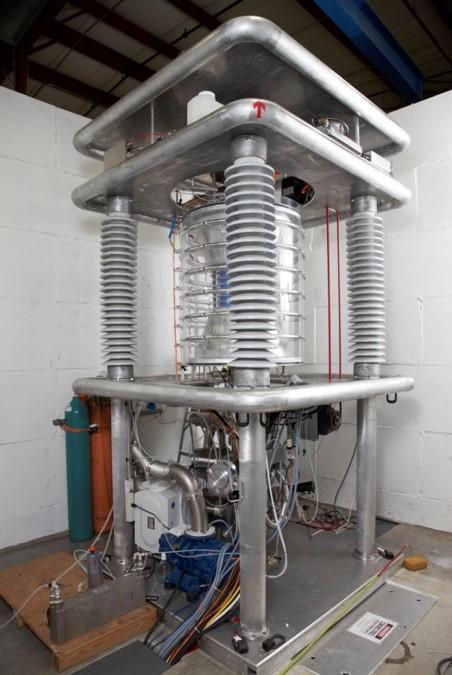With the power to create nuclear fusion as well as breakthroughs in the medical field, engineers at Phoenix Nuclear Labs look to make a difference with their high power neutron accelerator.
PNL — created by University of Wisconsin graduate Gregory Piefer — has already begun to sell their systems commercially, delivering their accelerator this past April to the U.K., PNL president Ross Radel said. This accelerator was in the works for five years, with its first patents submitted in 2008.
Piefer, PNL’s founder, said the idea for a high power accelerator such as this one first began when he was in his Ph.D. program at UW.
“I had some really inspirational folks teaching me,” Piefer said. “They taught me you can use nuclear fusion to make money today and by making money today you can use it to make better technology tomorrow.”
What makes their accelerator unique is its power, Radel said. This technology accelerates deuterium ions to 300,000 volts, smashing those ions into other ions that then produce a neutron.
Radel said one of the aspects of the accelerator that differentiates it the most is its ability to utilize an accelerated ion beam that runs into a target, which creates nuclear fusion. This, in turn, creates neutrons.
For a better understanding, Piefer said this process can be compared to alchemy, which turns lead into gold. Like alchemy, this accelerator causes nuclear fusion, turning elements into neutrons, Piefer said.
“Neutrons have a lot of value, so effectively it’s allowing us to make raw materials that are here on earth and turn them into neutrons to make something more valuable,” Piefer said.
One example of how this technology is used in the field is to take images — much like x-rays. But unlike rays, it sees light material buried within heavy material, Piefer said. This is called a neutron radiograph, which is used by a wide range of industries for the inspection of composite material, Piefer said.
But one of the uses that Radel said could have the most impact is as a medical isotope. Shine Medical Technologies, a spinoff of PNL also based in Madison, is using the accelerators built at PNL to make these medical isotopes.
Radel said the isotopes Shine produces can be used to do cancer screenings, heart-related screenings and medical diagnostics.
“We are doing something that is actually going to help people in the real world, and not every engineer gets to do that,” Radel said.
Currently, Piefer said, there is an old reactor in Canada, which produces a large amount of medical isotopes used to meet the needs of U.S. patients for procedures such as stress tests and bone scans. But in the next couple of years, this reactor will be shutting down and Phoenix technology will take its place.
The accelerator created in PNL has the ability to meet the needs of millions of patients in the U.S., Piefer said. This technology allows for mass quantities of isotopes to be created without the need for a reactor, thus ensuring that patients’ needs are met.
“I always hoped it would succeed and that’s why you do this stuff; you dream big and go after it,” Piefer said.


